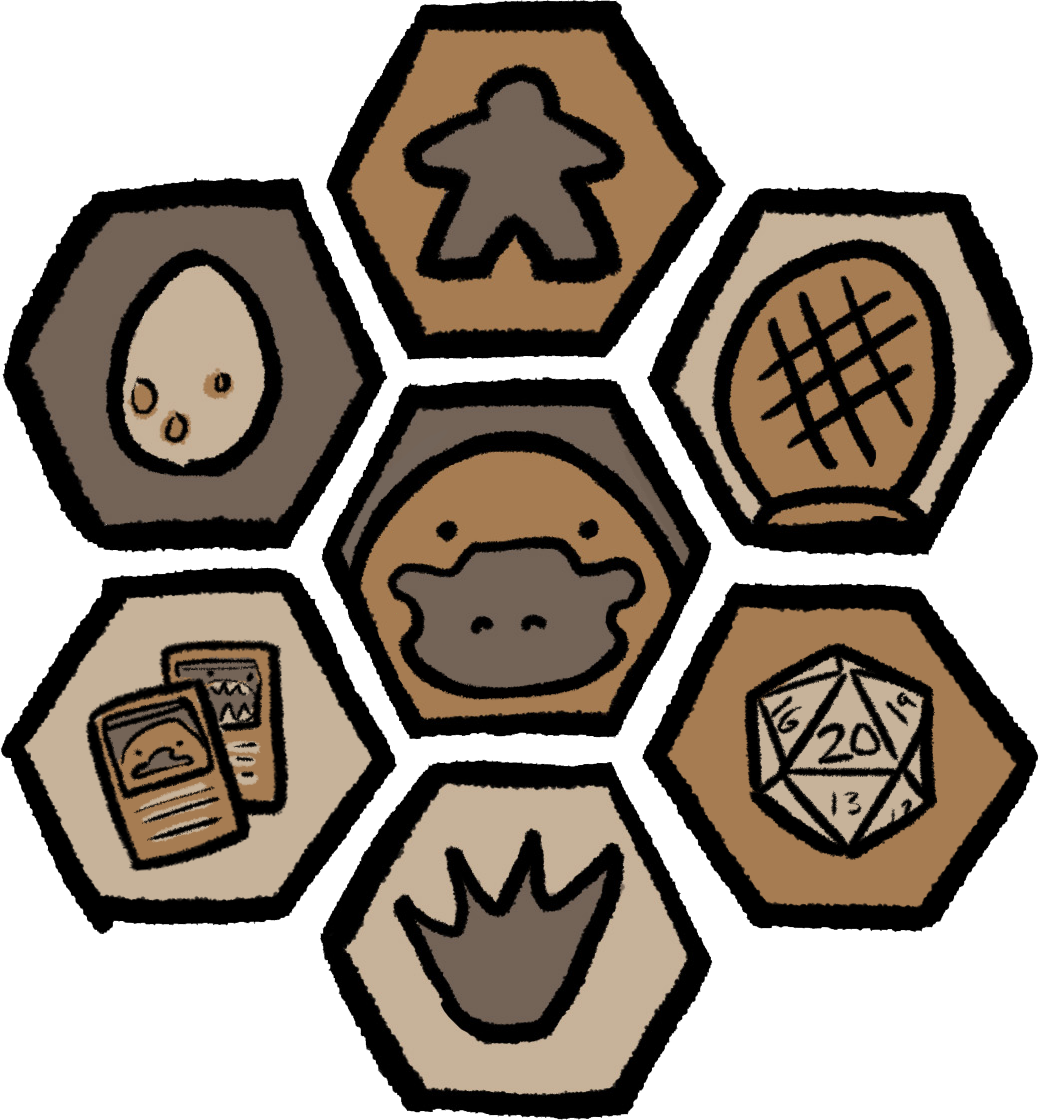A thief has stolen a valuable gem arrangement and you need to discover which one of the 36 gems has been stolen. For some reason while taking inventory each employee keeps secret which gems they have accounted for - seems an odd way to make sure the store is secure! That is the set up for a great, albeit relatively abstract, deduction game by Sid Sackson.
Thankfully you already know some of the gems are safe because they are in your hand! There are 3 different defining characteristics of the gems in the game that help you narrow down your search. All of the gems are one of four colors, one of three gems, and one of three different arrangements. Using cards that limit questions, you will try to sort out which of the gems is still inside the game box before any of your opponents. Generally the cards will have two traits on the card--for example Yellow Opals. If you use this card you can see one player's cards that match both of those traits. Everyone else just gets to know how many you were shown. Occasionally the cards will have only one trait, such as Clusters. If that question is used than everyone finds out how many a player has of that trait but no one gets to see which cards they actually are holding.
This interplay of asking questions and everyone getting at least some information makes the the game keep the attention of the players throughout instead of just on their own turns. If you were to ignore the information being gleaned on other turns you would definitely not be able to win.
Once you feel like you have narrowed down the answer to a single gem arrangement you can always interrupt to make your guess in secret. If you turn out being correct than you reveal the truth to everyone and win the game. Otherwise you are removed from having the chance to win but still need to answer questions! Thankfully if you are very close to the answer you can one time and one time only be free of the constraint of your cards and ask whatever question you want but you have to guess after that regardless of if it wound up being helpful.
A word of warning about the six player count on the side of the box.. When you have that many people the game becomes increasingly difficult to determine information and it just simply takes longer. Both of those problems are caused by the safe gems being spread across more players meaning everyone knows far less at the start.
Other than that one problem if you enjoy logic puzzles at all you owe it to yourself to give this classic deduction game an attempt. It winds up being a fun challenge to ask the right people the right question at the right time.



